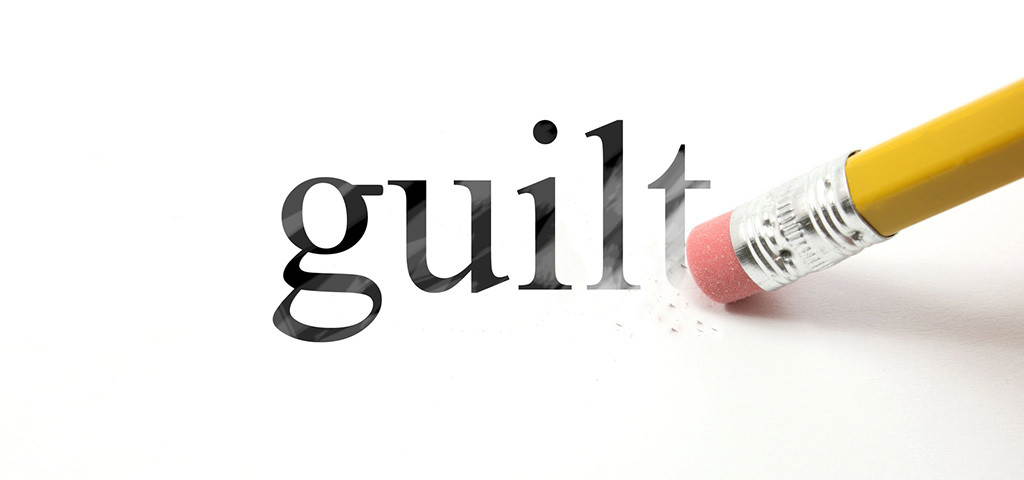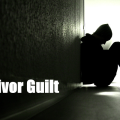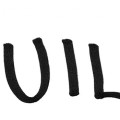
Dealing with guilt after suicide is a topic I often write about on our blog. It is described as the “crippling” emotion; an emotion that leaves a person feeling a sense of remorse. On my own grief journey, I found guilt to be the most difficult emotion to work through. Hence why I write about this topic so frequently. I have not only questioned my own role in my dad’s suicide, but also how much control I actually had in preventing this tragic outcome.
I recently came across the article, “As Suicide Rates Rise, Scientists Find New Warning Signs” in The Wall Street Journal. First, I was happy to see that as a society we are doing more to uncover what leads someone to making the choice to end their life, or as I like to say, end their pain. What I really loved about this article is that it highlighted factors that we do not have control over. For instance, the article talks about the reliance we have on the other person’s response when asked if they are experiencing suicidal thoughts. How much control do we have over how they respond? This also got me to thinking about the questions we ask in general. Are you ok? Do you need anything? How can I help? We do not have control over how a person responds to these questions either. I do realize this isn’t the case for everyone. Some people do see the signs, and still aren’t able to prevent their loved ones’ suicide. I wrote about this in a previous post “I Wasn’t Able to Prevent my Dad’s Suicide”. Yet simply thinking about how little control I had over how my dad responded to questions asked by others gave me a little reassurance. It is hard to help someone who doesn’t ask for help, or denies needing it.
Will this article release the guilt you are feeling? No, but I do hope it gives you something to think about. Guilt is tricky; it often creates irrational thoughts. It often makes us think that we had more control over a situation than we actually did. We aren’t able to control or relieve someone else from the horror that accompanies anxiety, depression, or addictions. Yet, after a suicide we often think we could have or should have. I know I did. After almost five years I have come to realize what I was able to control and what I wasn’t. It hasn’t been an easy journey, but I was able to finally release the guilt I was experiencing. It is my hope that my own experience with guilt will help you on your journey to find peace.
More posts on guilt:
Survivor’s Guilt after a Suicide
The Stages of Grief after a Suicide-Guilt




So true that guilt is a lasting emotion. It has been almost 11 years since my son (at age 18) chose to take his life. And Guilt of what I could have/should have done to change the outcome is as strong today as it was 10 years ago. I have tried and tried to accept I couldn’t do anything – but my head and heart have mixed feelings about that. I miss him so so bad and I am so sorry I didn’t realize the extent of the pain he was carrying… Thanks for your blog/words.
I agree- I will always regret that I didn’t get the extent of the pain my loved one was in. I will always regret I didn’t do more. It’s something I feel I have to accept I will live with.
Guilt is really an energy zapping feeling. After losing my youngest son at 20 years old in Novembet 2015 one day before his 21st birthday I felt guilt everyday for the first 4 months after his passing. After seeing a grief counsellor I turned a corner. I realised that I had done everything I could to help him telling him that I loved him everyday and having support networks set up for him to assist in his drug issues and depression. I did all that was within my power to help him but he was going to do what he did as I feel that he had given all he had to give to this world. I miss him every day but I have a life to live and I continue to tell people how kind hearted, generous and caring my Mick was. He lives on in my heart.
Guilt and Why? seem to be everlasting for me. I lost my daughter (she was 15) on 4/20/15 and the pursuit to understand why is never ending in my mind. With regards to guilt, I even recall feeling guilty when I experienced a good day. I felt like I shouldn’t be allowed to be happy since something so terrible had happened, and that I couldn’t possibly move on in a happy way. With time it’s gotten better and through group, knowing that I’m not the only one to feel this way, has helped as well.
The Greek stoic philosopher Epictetus wrote in “The Art of Living”:
“Some things are in our control and others not. Things in our control are opinion, pursuit, aversion, and in a word, whatever are our own actions. Things not in our control are body, property, reputation, command and in one word, whatever are not our own actions.”
“If you wish your children and your wife, and your friends to live forever, you are stupid; for you wish to be in control of things which you cannot, you wish for things that belong to others to be your own. ”
We feel guilty – on a very personal level and yet we had no control over what our loved ones are going to do with our without our knowledge. The rest is the darned stigma and mostly false claims of suicide prevention programs. Instead of preventing suicides we might want to work harder on mental health issues which could be caused by unknown physical issues. A lot of people just don’t get it. If you feel very depressed/anxious it does not automatically mean you have something wrong with your brain and now you need to go to the psychiatrist (the crazy people doctor everyone likes to avoid). It means something is wrong and we have to find out what exactly. Suicidal thoughts also don’t mean you have something wrong with your mind – it first just means you are stressed out for reasons we yet have to uncover.
And what does suicide prevention do? They put out it’s bad to have active or passive suicidal thoughts, this creates shame and even more anxiety. Even worse, look at how mentally ill people are still portrait in the media, movies, books etc. They are the bad guys, the crazy guys, the people who potentially hurt others. What does that mean for us? It means we have been failed by our fellow humans and their silly views. It’s still very much a taboo to talk about, you keep it to yourself and act as if nothing was wrong, until you can no longer control it. We catch them way too late, by the time they maybe display some of those illusive “signs” it’s actually too late.
A suicide is never caused by the failure of one daughter, mother, father, sibling, son etc. It’s caused by a very complex interplay of physical and mental reactions to outside stimuli and psychosocial problems that are way beyond our control – and this we create together. We lost our loved ones to the views and ignorance of the masses. So technically everyone who ever touched their lives, positive or negative, can go ahead and feel mighty guilty.
If I have learned something in the last couple of months it’s that 90% of all suicides are caused by chronic illness. Either physically or mentally but the physical causes mental issues and the mental eventually physical issues. Some run around for decades not telling anyone they are bipolar or schizophrenic. Some have heart issues, some kidney issues. We lose a lot of young men and women to chronic pain, diabetes, hormonal imbalances (especially postnatal depression).
Never forget, the third leading cause of death in this country is: Doctor errors. Some 210 000 to 440 000 patients die each year due to physician error. Perhaps we just want to fix out crappy health care system. In my son’s case I believe it was the medication cocktail they gave him without informing me what to watch out for, without ever considering my request for hospitalization and long term EEG and video monitoring, especially at night. Without ever screening for anxiety or depression very well knowing that epileptics often present atypical. I had been to the doctor 10 days prior to my son’s death because something was wrong and I could not pinpoint it. Now I know it was mighty atypical anxiety and depression due to epilepsy and medication.